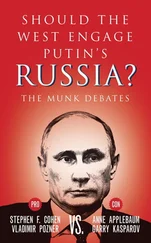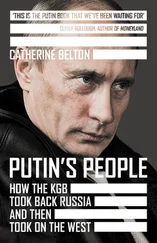had been airbrushed out. That would have seemed to be the end of that, but then in 2009 the elegant Kurskaya Metro Station finished its redo to its original Soviet purity, and, lo and behold, the lines airbrushed from the anthem had reappeared in large golden letters along the top of the interior wall, instantly generating controversy between those for whom Stalin’s name only signified suffering and those who preferred the uplift of imperial grandeur.
Word magic, the making and breaking of verbal icons, is also widespread in Russia. St. Petersburg was changed to the less German-sounding Petrograd (same meaning—Peter’s city) during World War I, then to Leningrad in 1924 when Lenin died, then back to its original name in 1991 with the fall of the USSR. In a nice twist, the new St. Petersburg is also the capital of Leningrad province, which they haven’t gotten around to renaming yet.
Right after the fall of the USSR, Moscow cabdrivers had to consult bulky volumes to find out the new names of Soviet streets, which had in turn been changed from their names in Tsarist Russia. “They even changed Chekhov Street back to its prerevolutionary name,” said one cabdriver plaintively. “What did Chekhov ever do to anybody?”
* * *
By the time Putin assumed office in early 2000, neither in words nor in images had post-Soviet Russia found any new icon to guide it into a future that looked hazardous at best.
Not only had enormous power been bestowed on Putin; he had also been charged thereby with resolving enormous tasks. He had to restore stability, strength, and status to his country. No easy tasks, but these were mostly tangible, solvable with time, money, and skill. But Putin was also faced with somehow curing the spiritual ills from which Russians and he himself suffered—the anxiety and suspicion generated by the country’s post-traumatic condition, and as well the lack of any clear vision of cultural values, national aim. Putin could not of course hammer out new icons for Russia, but good leadership could help create the matrix from which those new icons could yet arise.
Presented with immense power and daunting tasks, Vladimir Putin had been given a shot at greatness.
Without Ukraine, Russia ceases to be a Eurasian empire.
—ZBIGNIEW BRZEZINSKI
[213] Mark MacKinnon, The New Cold War (New York: Carroll and Graf, 2007), p. 153.
The empires of the future are the empires of the mind.
—WINSTON CHURCHILL
[214] Winston Churchill, “The Gift of a Common Tongue” Harvard Commencement Ceremony, September 6, 1943, www.winstonchurchill.org .
The key to the fate of Russia is the fate of Russian oil.
—THANE GUSTAFSON
[215] Thane Gustafson, Wheel of Fortune (Cambridge, Mass.: Belknap Press, 2012), p. 27.
Amazingly, reassuringly, suspiciously, Russia had followed its new Constitution. Putin, as prime minister, had automatically replaced President Yeltsin when he stepped down. Putin was then elected president in the elections the Constitution mandated take place within three months.
And so, on May 7, 2000, in the gilded and blue-silk moiré splendor of the Kremlin’s St. Andrew Hall, once the throne room of the tsars, Vladimir Vladimirovich Putin, his hand on the Constitution, took the presidential oath of office, which in its entirety ran: “I vow, in the performance of my powers as the President of the Russian Federation, to respect and protect the rights and freedoms of man and citizen, to observe and protect the Constitution of the Russian Federation, to protect the sovereignty and independence, security and integrity of the state and to serve the people faithfully.” [216] Section 1, Chapter 4, Article 92, Constitution of the Russian Federation, President of Russia Official Web Portal.
Putin was open about his statist views from the start. The “rights and freedoms of man and citizen” had less timbre for him than the “security and integrity of the state.”
In First Person , his 2000 autobiography—actually a mix of interviews with journalists and oral history reminiscences by his friends, teachers, and family—Putin was quite clear how he viewed the state: “From the very beginning, Russia was created as a super-centralized state. That’s practically laid down in its genetic code, its traditions, and the mentality of its people.” [217] Putin, First Person , p. 186.
Though there were some liberal economists in Putin’s inner circle, like Alexei Kudrin, who served as minister of finance from 2000 to 2011, most, some estimates range as high as 40 percent, were security types, preferably ex–Leningrad KGB. One colleague from Dresden, Sergei Chemezov, would head up Russia’s weapons export. This was not only loyalty, but calculation—Putin knew these types, how to read them, how to use them.
Three moves he made in the summer of 2000 should have been enough to indicate his bent and dispel some of the hopeful haze around his election. In July he summoned the oligarchs to the Kremlin and laid down the law: You can keep your money, but pay your taxes and keep your nose out of politics. Subsequent events would reveal that not everyone got the message.
The second move was one he did not make—not quickly returning from vacation in Sochi to deal with the crisis of the Russian nuclear-powered attack submarine Kursk , which had gone down in Arctic waters. Putin was extremely reluctant to seek foreign aid to rescue the sailors, still alive but dying a slow, hideous, and unnecessary death. None of this played well on television.
Yeltsin’s election in 1996 and Putin’s own election in April 2000 had convinced him of the power of television, a lesson that was only negatively reinforced by the poor coverage he received during the Kursk disaster. The oligarch Boris Berezovsky’s TV Channel 1, sometimes called ORT, was especially unrelenting in its criticism of Putin. In his third move of clear significance, Putin summoned Berezovsky and said quite matter-of-factly: “ORT is the most important channel. It’s too important to be left outside government influence. We made a decision…”—meaning the state would be taking control of ORT and resistance would be not only futile, but criminal. It didn’t matter in the least that Berezovsky had been instrumental in Putin’s rise.
Soon enough the conversation grew emotional, ranging from self-pity to rage, with Putin asking: “Why are you attacking me? Have I done anything to hurt you?”
“Volodya, you made a mistake when you stayed in Sochi. Every station in the world…”
“I don’t give a fuck about every station in the world,” interrupted Putin. “Why did you do this? You are supposed to be my friend. It was you talked me into taking this job. And now you are stabbing me in the back.” [218] Alex Goldfarb and Marina Litvinenko, Death of a Dissident (New York: Free Press, 2007), p. 210.
By the end of the year, rightly fearing prison, Berezovsky left Russia, never to return. Living in England, he would expend considerable energy trying to prove that the three explosions of apartment buildings in late 1999 that were blamed on Chechens were in fact a secret police operation designed to create an atmosphere of alarm and help the tough-talking Putin get elected. That Putin’s reign began under the shadow of deceit and homicide has not yet been proved, nor will it likely ever be.
Like most of the other oligarchs, Berezovsky had no real business acumen. Though he lived high on the British hog for a decade, his fortunes took a severe turn for the worse in 2012 when he lost a costly court battle, and in the following year, faced with mere diminishment, all-or-nothing Berezovsky chose nothing, hanging himself in a bathroom locked from the inside, though doubts flicker even around this incident.
Читать дальше
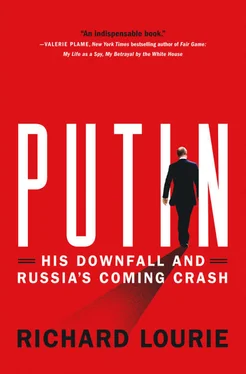

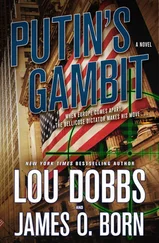
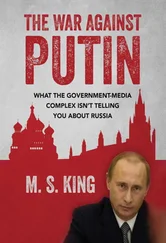
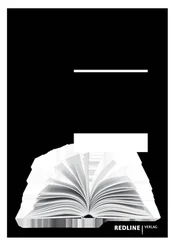
![Stephan Orth - Behind Putin's Curtain - Friendships and Misadventures Inside Russia [aka Couchsurfing in Russia]](/books/415210/stephan-orth-behind-putin-s-curtain-friendships-a-thumb.webp)

